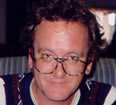 Depuis la fin des années 80, il est autorisé de parler de la criminalité en Russie : des statistiques sont publiées, les sources d'informations se multiplient. Ce phénomène nouveau engendre une perception erronée du phénomène criminel.
Depuis la fin des années 80, il est autorisé de parler de la criminalité en Russie : des statistiques sont publiées, les sources d'informations se multiplient. Ce phénomène nouveau engendre une perception erronée du phénomène criminel. Une mythologie se crée ainsi, présente non seulement dans l'opinion publique, mais aussi dans les média et les discours des dirigeants politiques. Sept mythes peuvent être identifiés.
Le premier correspond à la conviction selon laquelle la hausse actuelle de la criminalité serait extraordinaire. Il est dû à la surabondance de statistiques publiées sur ce thème.
Le premier correspond à la conviction selon laquelle la hausse actuelle de la criminalité serait extraordinaire. Il est dû à la surabondance de statistiques publiées sur ce thème.
Si on prend du recul par rapport aux chiffres publiés, il est clair que le niveau actuel de la criminalité ne constitue pas un recors. il est bien moins élevé qu'au cours des années 20 en U.R.S.S et n'atteind pas le niveau existant aux Etats-Unis ou dans les pays d'Europe occidentale.
Le taux d'élucidation des faits a beau baisser en Russie de façon préoccupante, il reste supérieur aux chiffres atteints dans les pays occidentaux. Le nombre de meurtres en Russie reste, il est vrai, préoccupant et comparable à la majorité des pays d'Europe occidentale.
Le taux d'élucidation des faits a beau baisser en Russie de façon préoccupante, il reste supérieur aux chiffres atteints dans les pays occidentaux. Le nombre de meurtres en Russie reste, il est vrai, préoccupant et comparable à la majorité des pays d'Europe occidentale.
Il faut cependant noter que ce n'est pas un phénomène extraordinaire, car il y a toujours eu en Russie un nombre élevé de meurtres, y compris durant les périodes relativement calmes de noytre histoire, par exemple à la fin du dix-neuvième siècle.
Le second mythe consiste à dire que les criminels provoquent un dommage considérable auprès de la population. En 1994, ce dommage s'élève à 766 milliards de roubles, soit 350 millions de dollars. Ce chiffre est supérieur aux dommages créés par les incendies (450 millars de roubles), mais bien inférieur à l'argent perdu par la population dans les banques et sociétés commerciales (20.000 milliards de roubles).
Le second mythe consiste à dire que les criminels provoquent un dommage considérable auprès de la population. En 1994, ce dommage s'élève à 766 milliards de roubles, soit 350 millions de dollars. Ce chiffre est supérieur aux dommages créés par les incendies (450 millars de roubles), mais bien inférieur à l'argent perdu par la population dans les banques et sociétés commerciales (20.000 milliards de roubles).
Les meurtres ne représentent pas une cause de décès quantitativement comparable aux accidents de la route, aux maladies et à l'alcoolisme.
Troisième mythe : la population considérerait que le problème de la criminalité est le plus préoccupant. Il est vrai que toutes les enquêtes montrent que la criminalité constitue une des principales inquiètudes de la population.
En approfondissant l'analyse des réponses, il est aisé de se rendre compte que ce n'est pas le niveau réel de la criminalité qui suscite cette opinion, mais, d'une part, la couverture médiatique de ce phénomène et, d'autre part, l'impression que les organes des forces de l'ordre sont impuissants à juguler ce problème. Derrière la peur suscitée par la criminalité, se cache la prise de conscience de la crise de la justice, du pouvoir et de l'Etat.
Le quatrième mythe revient à dire que le durcissement des peines fait baisser le niveau de la criminalité. Dans la plupart des cas, les crimes sont commis dans une situation de besoin ou dans un état ne permettant pas d'apprécier les risques pris. De nombreuses études, en Russie comme à l'étranger, prouvent que la relation causale durcissement des peines - baisse de la criminalité est erronée.
Le cinquième mythe, sur lequel il n'est pas besoin de s'étendre, considère qu'il n'y a que des criminels dangereux en prison. Cette absurdité reste vivace en Rusie. Il suffit de considérer le nombre de détenus emprisonnés pour spéculation dérisoire pour en être convaincu.
Sixième mythe : la criminalité est un phénomène global qui nécessite une réponse elle-même globale. Le problème ici est que la criminalité est considérée uniquement sous l'angle de sa définition juridique. Est criminel tout ce qui est contraire à la loi, tout ce qui est recensé dans le code pénal en vigueur.
Troisième mythe : la population considérerait que le problème de la criminalité est le plus préoccupant. Il est vrai que toutes les enquêtes montrent que la criminalité constitue une des principales inquiètudes de la population.
En approfondissant l'analyse des réponses, il est aisé de se rendre compte que ce n'est pas le niveau réel de la criminalité qui suscite cette opinion, mais, d'une part, la couverture médiatique de ce phénomène et, d'autre part, l'impression que les organes des forces de l'ordre sont impuissants à juguler ce problème. Derrière la peur suscitée par la criminalité, se cache la prise de conscience de la crise de la justice, du pouvoir et de l'Etat.
Le quatrième mythe revient à dire que le durcissement des peines fait baisser le niveau de la criminalité. Dans la plupart des cas, les crimes sont commis dans une situation de besoin ou dans un état ne permettant pas d'apprécier les risques pris. De nombreuses études, en Russie comme à l'étranger, prouvent que la relation causale durcissement des peines - baisse de la criminalité est erronée.
Le cinquième mythe, sur lequel il n'est pas besoin de s'étendre, considère qu'il n'y a que des criminels dangereux en prison. Cette absurdité reste vivace en Rusie. Il suffit de considérer le nombre de détenus emprisonnés pour spéculation dérisoire pour en être convaincu.
Sixième mythe : la criminalité est un phénomène global qui nécessite une réponse elle-même globale. Le problème ici est que la criminalité est considérée uniquement sous l'angle de sa définition juridique. Est criminel tout ce qui est contraire à la loi, tout ce qui est recensé dans le code pénal en vigueur.
Dans la pratique, il est clair que la criminalité ne peut être considérée comme un tout, dans la mesure où elle cache des pratiques, des formes et des motivations très diverses.
Le slogan "lutter contre la criminalité" ne répond donc qu'à des besoins politiques de mobilisation de la société. Il est inefficace et absurde du point de vue de l'application. Au contraire, la Russie a aujourd'hui besoin, pour réellement lutter contre la criminalité, de diversifier ses modes d'action et de réaction.
Enfin, le dernier mythe principal concerne la criminalité organisée, perçue comme une force obscure, éminence grise qui tiendrait le pays. Ce mythe rejoint certaines choses écrites sur les francs-maçons et les juifs. Cet amalgame prouve l'existence de fantasmes sur la criminalité organisée.
Le slogan "lutter contre la criminalité" ne répond donc qu'à des besoins politiques de mobilisation de la société. Il est inefficace et absurde du point de vue de l'application. Au contraire, la Russie a aujourd'hui besoin, pour réellement lutter contre la criminalité, de diversifier ses modes d'action et de réaction.
Enfin, le dernier mythe principal concerne la criminalité organisée, perçue comme une force obscure, éminence grise qui tiendrait le pays. Ce mythe rejoint certaines choses écrites sur les francs-maçons et les juifs. Cet amalgame prouve l'existence de fantasmes sur la criminalité organisée.
Si on se tient à une définition rigoureuse du phénomène, celui-ci est beaucoup plus circonscrit qu'on ne le pense. Employer le mot "mafia" à propos de l'Etat russe souligne la confusion suscitée par une période difficile pour une grande partie de la population russe.


